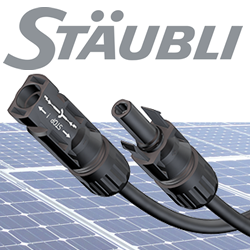Gaia commits with energy efficiency
With its participation as the only Spanish partner in the European project PRIME ENERGY IT which promotes energy efficiency in the information technologies
• As a result of the project and the work carried out over the last two years, an open access set of services has been developed for Basque and European companies and organizations which aims to promote the energy efficiency in the IT devices.
• All the material is available to download in the project web page http://www.efficient-datacenter.eu/
• GAIA emphasizes that the implementation of efficient energy technologies and optimized hardware operations brings into savings of around 75% in costs and energy consumption.
11 October 2012. The Electronics, Information Technology and Telecommunications Cluster in the Basque Country (GAIA-Cluster TEIC) has participated, together with an international consortium of companies and institutions and as the only Spanish partner, in the European project PRIME ENERGY IT since May 2010. The project aims to promote the development of a market based on sustainable technologies and infrastructures, among which are included servers, data storage, networks and installation equipment, as well as new technologies for energy management.
The origin of the project- supported by the Intelligent Energy Program of the European Commission-, arises from the need of putting into practice new technologies which will result in a reduction of the energy demand clearly need due to the increasing energy consumption of IT devices.
As a result of the PRIME ENERGY IT project - and the active collaboration of Gaia- there are a wide range of services designed and already implemented in order to promote the energy efficiency in the information technology devices. All this services, are available to be downloaded by Basque and European companies and organizations in the following web page: http://www.efficient-datacenter.eu/
Among these services, the comprehensive training program addressed for the professionals in the area needs to be emphasized. The objective of the training is to facilitate the management and selection of the energy efficiency and provide them with the knowledge of the rules and procedures for improving the implementation of energy efficiency. The program -which has been designed by the Technical University of Berlin, Polytechnic of Milan and the University of Coimbra-, has been divided into seven modules available on the project webpage. GAIA- Cluster TEIC- in collaboration with the associated company PQC- has already impart this training modality in Bilbao, Madrid and Barcelona.
Additionally, a set of brochures on energy efficient technology and best practice cases in data centers in Europe have been published, as well as a brochure about the process of Green Public Procurement (GPP). For the realization of these brochure, Gaia has count with the experience and collaboration of PQC, Venticlima and Electrosón Castilla companies.
In this sense, GAIA emphasizes that the implementation of efficient energy technologies and optimized hardware operations allows to achieve savings of around 75% in costs and energy consumption and bet that the public organizations "
"lead the shift towards more sustainable production and consumption models and more ecological technologies. If we consider that every year the purchases of public institutions represent between the 16% and 18% of GDP at European scale and the 17% of GDP in Spain, the implementation of such criteria will be a significant benefit" they conclude.
Causes for the bad use of energy
According to the reports from GAIA the energy inefficiencies in organizations are due mainly to poor design and high density of the spaces, the cooling and insufficient supply, as well as for the maintenance and operations of the unqualified personal of the Data Center.
It is important to add to these problems that the majority of organizations have not implements yet a coherent strategy and a comprehensive and systematic approach to reducing energy consumption in data centers.
Therefore, they conclude, "the effective resolution of the environmental impact of IT technologies requires a holistic approach of the problem which includes 4 main areas: ecological using, eco-design, green manufacturing and environmentally friendly elimination. The main idea of the holistic approach is to close the life cycle of IT equipments in a way that does not harm the environment. "
CONSORTIUM AND PROJECT PARTNERS
Besides GAIA-Cluster TEIC, the consortium of the PRIME ENERGY IT project is integrated by:
Austrian Energy Agency, Berlin Energy Agency, Berlin Institute of Technology (in co-operation with Fraunhofer IZM), BIO Intelligence Service, eERG - Politecnico di Milano - Energy Department, ICLEI European Secretariat GmbH, INRIA - French National Institute for Research in Computer Science and Control, Institute of Systems and Robotics - University of Coimbra, y SEVEn, The Energy Efficiency Center
The industrial partners of the project are: Fujitsu Technology Solutions, EMC Europe, DELL, CISCO, Knürr, STULZ, Alcatel-Lucent y Arch Rock
GAIA
GAIA-Cluster TEIC (Electronics, Information Technology and Telecommunications Cluster of the Basque County), was created in 1983 currently made up of 274 companies supporting them in areas like R&D, training, human resources, internationalization, advanced management, certifications, establishing strategic alliances, among other services
Featured Product

​Stäubli Electrical Connectors
​Stäubli Electrical Connectors are used on more than 300 GW, over 50% of the PV capacity worldwide. The MC4 family of UL and TUV listed products include connectors, in-line fuses, branch connectors, cable assembly and more.
